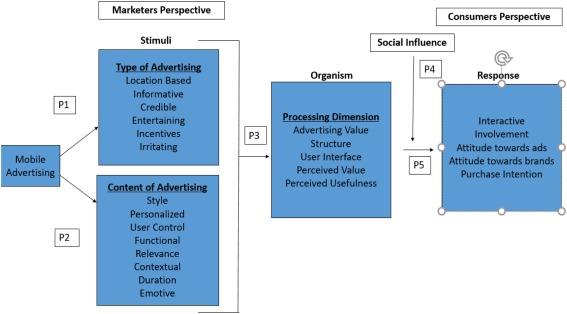Parental Involvement in Social-Emotional Learning: Key Strategies for Supporting Your Child’s Development
In today’s rapidly changing world, social-emotional learning (SEL) has become a cornerstone of holistic child development. While schools are increasingly integrating SEL into their curricula, the role of parental involvement in social-emotional learning is irreplaceable. When parents actively support their child’s social and emotional growth,they lay a foundation for academic success,emotional intelligence,and lifelong resilience.
What is Social-Emotional Learning (SEL)?
Social-emotional learning refers to the process through which children acquire and apply the knowledge,attitudes,and skills necessary to:
- Understand and manage emotions
- Set and achieve positive goals
- Show empathy for others
- Establish and maintain positive relationships
- Make responsible decisions
By nurturing these skills,children become more adept at handling everyday challenges and forging healthy relationships,both in and outside of school.
Why Parental Involvement in Social-Emotional Learning Matters
“Children are not born wiht social-emotional skills; they develop them through daily interactions with their primary caregivers.”
Research consistently demonstrates that when parents are actively involved in their child’s SEL journey, children show marked improvements in behavior, emotional regulation, and academic performance. The home environment serves as the first classroom for social and emotional learning, making parental guidance crucial for reinforcing concepts taught at school.
Core Benefits of Parental Involvement in SEL
- Stronger Parent-Child Bond: Consistent dialog about feelings and challenges builds trust and understanding.
- Boost in Self-Esteem: Supported children develop confidence in their abilities to manage emotions and solve problems.
- Improved Academic Outcomes: Children with robust SEL skills are more engaged and motivated learners.
- Lower Risk of Behavioral Issues: Emotional support at home helps reduce anxiety, aggression, and disruptive behaviors.
- Greater Resilience: Children learn coping strategies to handle setbacks and adapt to new situations.
Key Strategies for Supporting Your Child’s Social-Emotional Development
Incorporating parental involvement in social-emotional learning doesn’t require a special curriculum—just intentional actions and open communication. Here are proven strategies to nurture key SEL competencies at home:
1. model Emotional Intelligence
- Express your own feelings using “I” statements (“I feel frustrated when…”)
- Demonstrate coping mechanisms, such as deep breathing or taking a break
- Let children see you apologize and resolve conflicts constructively
2. Encourage Open Dialogue
- Ask daily questions like,”What was the best part of your day?” or “Did anything make you feel sad today?”
- Listen without judgment and validate their emotions
- Guide your child in naming and understanding their feelings
3. Set Consistent Routines and Boundaries
- Establish regular family routines, such as shared meals or bedtime rituals
- Discuss and agree on clear family rules and expectations
- Use gentle reminders and positive reinforcement to encourage good choices
4. Foster Empathy and Social Skills
- Read books or watch movies together and discuss the characters’ emotions
- Involve children in acts of kindness, such as volunteering or helping a neighbor
- Encourage role-playing scenarios to practice problem-solving and perspective-taking
5. Collaborate with Schools and Teachers
- attend SEL workshops and parent-teacher meetings
- Ask teachers about the SEL curriculum and ways to reinforce it at home
- Share feedback with educators on your child’s social-emotional growth
6. Use Everyday Moments for Learning
- Turn disputes with siblings into lessons on fair play and emotion regulation
- Celebrate effort and resilience, not just achievements
- guide children to reflect on mistakes and brainstorm better choices for the future
Case Study: The Impact of Parental Involvement in SEL at home
“After we started family check-ins every evening, I noticed my daughter became more willing to talk about her day and handle setbacks calmly. Even her teachers commented on her improved social skills at school.” – Emily, mother of a 9-year-old
this real-life example highlights how simple, consistent parental practices can have a transformative effect on both a child’s emotional well-being and their school experience. When families prioritize social-emotional learning,children are equipped with tools they’ll use for a lifetime.
Practical Tips for Busy Parents
It’s natural to feel overwhelmed with the demands of parenting, but supporting your child’s social-emotional development can fit seamlessly into daily life. Consider these time-saving tips:
- use car rides to check in emotionally on the day’s events
- Create a family gratitude jar where everyone shares somthing positive each night
- Leave encouraging notes in your child’s lunchbox
- Integrate SEL-themed podcasts or storybooks into bedtime routines
- Use family meals as a platform for discussing values and resolving conflicts
Frequently Asked Questions about Parental Involvement in Social-Emotional Learning
How can I tell if my child is developing strong social-emotional skills?
Look for signs like self-control, empathy, the ability to resolve conflicts peacefully, and willingness to seek help when needed. Regular communication with teachers can also provide valuable insights.
What if my child is resistant to talking about feelings?
Patience is key. Model openness with your own emotions and try engaging through shared activities, such as reading or drawing together.
Are there resources to help parents with SEL at home?
many schools provide SEL resources. Additionally,organizations like CASEL offer free guides and activities for families.
Conclusion: Building Strong Foundations for Lifelong Success
The role of parental involvement in social-emotional learning extends far beyond school walls. By modeling emotional intelligence, fostering open communication, and collaborating with educators, parents create a nurturing environment where children can thrive emotionally, socially, and academically.
Embracing daily practices—no matter how small—makes a lasting impact. Start today, and become your child’s greatest ally in their journey towards confident, compassionate, and resilient adulthood.

